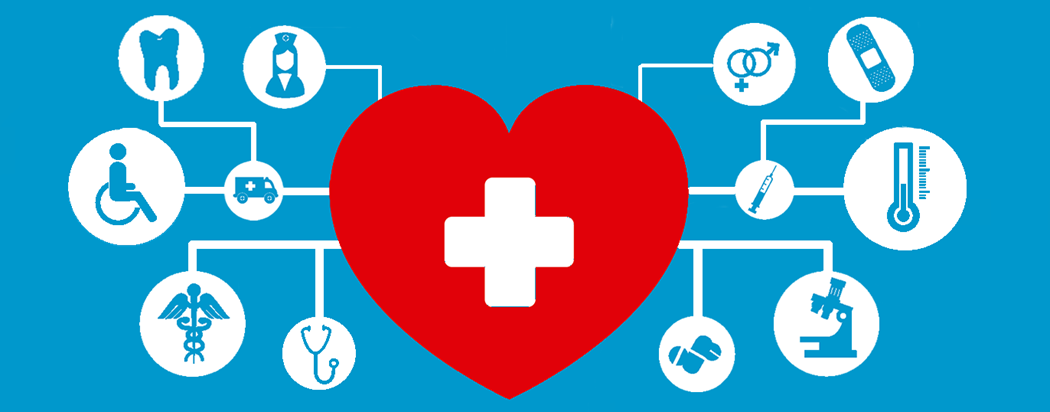
If you're interested in becoming a medical equipment repairer, there are several things you should know about the job. These include the qualifications, training, and salary. Continue reading for more information. There are many jobs available in this field, and the average salary for a qualified worker is around $47,000.
Qualifications
A medical equipment repairer is responsible for the maintenance and repair of medical equipment in hospitals and medical facilities. Medical equipment is extremely complex and requires skilled technicians to maintain it properly. In addition to making repairs on complicated machines, they also perform routine scheduled maintenance. This type of work requires an individual to be comfortable working around patients. They must also be able handle stressful situations and communicate well.
Association for the Advancement of Medical Instrumentation (AAAMI) is required to certificate many medical equipment technicians. These certifications can be a great way to show your interest and drive, as well as allowing potential employers to feel confident hiring you. Additionally, medical equipment repairers must have steady hand-eye coordination and excellent communication skills, as well as a thorough understanding of the systems and components.

Job description
A medical equipment repairer is responsible for maintaining and repairing a variety of medical equipment. These equipment include medical monitors, defibrillators voice-controlled operating table, electric wheelchairs, and voice-controlled patient monitors. They use multimeters and soldering tools to repair and diagnose medical equipment. They also adjust hydraulic and mechanical components and software to bring equipment back into calibration.
Other duties of a medical equipment repairer include troubleshooting equipment malfunctions and demonstrating how to use it safely. They also work closely alongside medical staff to diagnose problems, order replacement parts, and coordinate with them. They also keep track of their work. These professionals regularly attend workshops and conferences to enhance their skills.
Training
The educational requirements for becoming a medical equipment repairer will vary depending on the area of specialization and experience level. Aspiring medical equipment repairers will generally need an associate's or post-associate degree. Bachelor's degrees may be required for advanced training. Along with formal education, many medical equipment technicians also undergo on-thejob training. The training lasts three to six months, and includes learning from and observation by experienced workers.
The training of medical equipment repairers includes the ability to repair and diagnose various types of medical equipment. Typically, they will work in a hospital or medical clinic, where they will utilize specialized tools and diagnostic equipment. Wayne County Community College District provides an associate's degree program in biomedical repair technology. Tallahassee Community College also offers a certificate program in central sterile process technology that focuses on the repair of reusable surgical equipment.

Salary
The salary for a medical device repairer is determined by the level of education and the amount of experience. For entry-level positions, a high school diploma or an equivalent qualification is sufficient. However, a college degree is preferable in biomedical technology. A bachelor's degree in this field can lead to higher salaries and more technical positions.
Training to become a medical equipment repairer can take anywhere from one to four years. To keep up-to-date on the latest equipment and advances, it is important to continue your education. Some employers prefer certified people and may even pay for the certification.
FAQ
What is the significance of the health-care system?
The country's health care system is a vital part of its economy. It allows people to live longer and healthier lives. It also creates jobs for doctors, nurses, and other medical professionals.
Health care systems help ensure everyone has access to quality healthcare services, regardless of income level.
You will need to be able to comprehend the functioning of healthcare systems if your goal is to be a doctor or nurse.
What is the best way to learn about health insurance?
Keep track of all your policies if you have health insurance. Ask questions if you are unsure about your plan. Ask your provider or customer service to clarify anything.
When it comes to using your insurance, make sure you take advantage of the deductible. Your deductible is the amount that you have to pay before your insurance covers the rest of the bill.
What are the best ways to get free insurance for my health?
If you are eligible, you can apply for free insurance. You may be eligible for Medicaid or Medicare, CHIP. Children's Health Insurance Program, (CHIP), Tricare. VA benefits. Federal Employee Health Benefits. (FEHB). Military health plans. Indian Health Service (IHS).
What are your thoughts on the most pressing public health issues?
Many people suffer from obesity, diabetes, heart disease, and cancer. These conditions cause more deaths yearly than AIDS, car crashes, and murders combined. Poor diet, inactivity, and smoking all contribute to high blood pressure and stroke, asthma, arthritis and other conditions.
What are the three levels of health care facilities?
The first level is general practice clinics which provide basic medical services for patients who do not require hospital admission. They may also refer patients if needed to other providers. This could include general practitioners and nurse practitioners as well as midwives.
The second level of care is primary care centers, which provide outpatient services that include emergency care. These include hospitals and walk-in clinics as well as urgent care centers.
Secondary care centers are the third level and offer specialist services like neurosurgery, eye surgery, and orthopedic surgery.
What is the difference in public and private health?
Both terms refer to decisions made by policymakers and legislators to affect the delivery of health services. It could be local, regional, or national to decide whether a new hospital should be built. The decision to require employers offer health insurance can be made by national, regional, or local officials.
What are the primary functions of a healthcare system?
The health system must provide quality medical services at affordable prices to all people.
This includes providing preventive care, encouraging healthy lifestyles and the appropriate treatment. It also requires equitable distributions of healthcare resources.
Statistics
- The health share of the Gross domestic product (GDP) is expected to continue its upward trend, reaching 19.9 percent of GDP by 2025. (en.wikipedia.org)
- For instance, Chinese hospital charges tend toward 50% for drugs, another major percentage for equipment, and a small percentage for healthcare professional fees. (en.wikipedia.org)
- Price Increases, Aging Push Sector To 20 Percent Of Economy". (en.wikipedia.org)
- Foreign investment in hospitals—up to 70% ownership- has been encouraged as an incentive for privatization. (en.wikipedia.org)
- The healthcare sector is one of the largest and most complex in the U.S. economy, accounting for 18% of gross domestic product (GDP) in 2020.1 (investopedia.com)
External Links
How To
What is the Healthcare Industry Value Chain?
The healthcare industry value chain consists of all the activities involved in providing healthcare services to patients. This includes the operations of hospitals and clinics as a whole, and the supply chain that connects them to other providers. The result is a continuum which starts with diagnosis and ends in discharge.
The value chain is composed of four main components:
-
Business Processes - These consist of the tasks performed by individuals throughout the entire process of delivering health care. For example, a doctor may perform an exam and then prescribe medication. Each step of the process must be completed accurately and efficiently.
-
Supply Chains – The entire network of organizations responsible for ensuring that the right supplies reach those who need them. A typical hospital has many suppliers. They include pharmacies as well lab testing facilities, imaging center, and even janitorial employees.
-
Networked Organizations: To coordinate these entities, it is necessary to have some means of communication between them. Most hospitals have multiple departments. Each department has its own office and phone number. Employees will be able to access a central point for information and updates in every department.
-
Information Technology Systems - IT plays a critical role in business process efficiency. Without it things would quickly fall apart. IT is also a platform that allows for the integration of new technologies into the system. A secure network connection can be used by doctors to connect electronic medical records to their workflow.